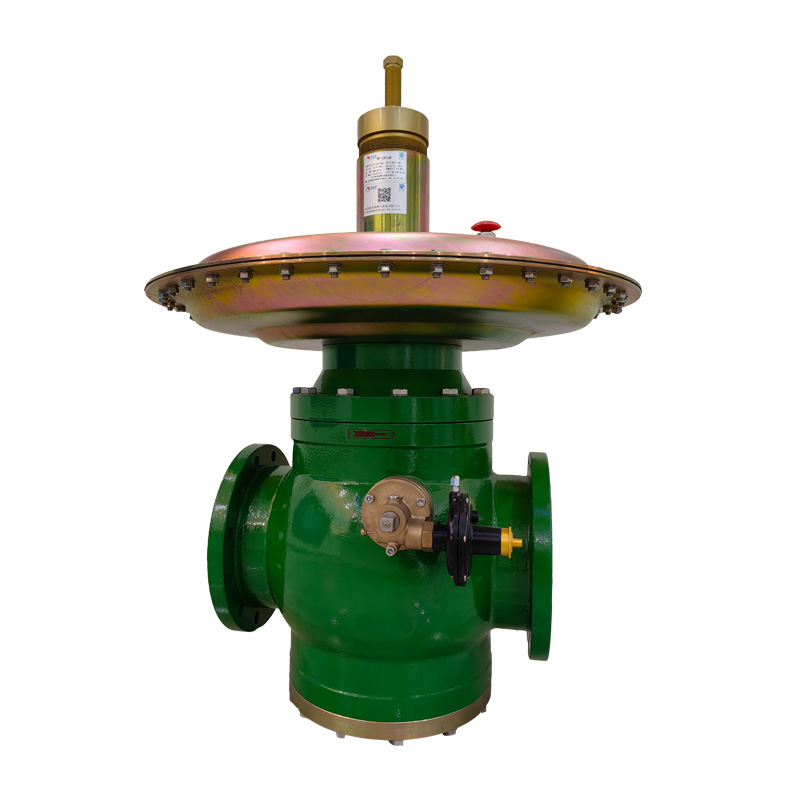
Nov . 22, 2024 21:13
Back to list
natural gas regulator
Understanding Natural Gas Regulators Key Components for Safe and Efficient Distribution
Natural gas is a critical energy source for countless homes and industries worldwide. As we increasingly rely on this fossil fuel for heating, cooking, and generating electricity, ensuring its safe and efficient distribution is paramount. One of the essential components in the natural gas supply chain is the natural gas regulator. This article explores the function, types, and importance of natural gas regulators in the energy sector.
What is a Natural Gas Regulator?
A natural gas regulator is a device that controls the pressure of natural gas as it flows from the supply source to the end-user. The primary purpose of a regulator is to maintain a consistent and safe pressure level, ensuring that the gas can be used efficiently without risking leaks or explosions. Gas regulators are used in various settings, including residential homes, commercial buildings, and industrial facilities.
How do Natural Gas Regulators Work?
Natural gas regulators operate on the principle of pressure reduction. High-pressure natural gas enters the regulator from the main supply line and must be reduced to a usable pressure for residential or commercial applications. The regulator contains a spring-loaded diaphragm that responds to changes in pressure. When the gas flows into the regulator and exceeds the desired pressure threshold, the diaphragm moves, adjusting the flow of gas and thereby lowering the pressure to the required level.
Most regulators also include a venting system that releases excess pressure, ensuring safety should the gas pressure unexpectedly rise. This mechanism is vital for preventing dangerous conditions that could arise from over-pressurization, such as pipeline ruptures or gas leaks.
Types of Natural Gas Regulators
Natural gas regulators can be classified into several categories based on their application and design
1. First-Stage Regulators These are usually located at gas distribution facilities and are responsible for reducing high-pressure gas from transmission pipelines to a medium pressure.
natural gas regulator

2. Second-Stage Regulators Found closer to the end-user, second-stage regulators further reduce the medium pressure to a low-pressure standard suitable for residential or commercial appliances.
3. Emergency Regulators These regulators are designed to shut off the gas supply immediately in case of a pipeline failure or other hazardous situations.
4. Electronic Regulators Technological advancements have led to the development of electronic regulators that use sensors and control systems to monitor pressure levels in real-time, enhancing efficiency and safety.
Importance of Natural Gas Regulators
1. Safety The primary role of regulators is to ensure safe gas delivery. By controlling and maintaining appropriate pressure levels, they significantly reduce the chances of accidents caused by gas leaks or explosions.
2. Efficiency Regulators help optimize the performance of gas appliances by providing the correct pressure needed for combustion. This ensures that gas is used efficiently, which can lead to lower energy bills for consumers.
3. Regulatory Compliance Natural gas regulators must meet specific industry standards and regulations. Proper installation and maintenance of these devices are crucial for compliance with safety laws and standards set by governing bodies.
4. Environmental Protection By ensuring the efficient use of natural gas, regulators can contribute to reducing greenhouse gas emissions. Efficient gas appliances generate lower emissions, helping to mitigate the environmental impact of using fossil fuels.
Conclusion
Natural gas regulators are vital components of the natural gas distribution system, playing a crucial role in ensuring the safe and efficient delivery of this important energy source. By controlling pressure levels and maintaining safety standards, regulators protect users while enhancing the efficiency of gas appliances. As technology advances, we can expect improvements in regulator design and functionality, further contributing to safety and efficiency in the natural gas sector. Understanding and appreciating the importance of natural gas regulators can help consumers make informed choices about their energy usage and contribute to a more sustainable future.
Next:
Latest news
-
Safety Valve Spring-Loaded Design Overpressure ProtectionNewsJul.25,2025
-
Precision Voltage Regulator AC5 Accuracy Grade PerformanceNewsJul.25,2025
-
Natural Gas Pressure Regulating Skid Industrial Pipeline ApplicationsNewsJul.25,2025
-
Natural Gas Filter Stainless Steel Mesh Element DesignNewsJul.25,2025
-
Gas Pressure Regulator Valve Direct-Acting Spring-Loaded DesignNewsJul.25,2025
-
Decompression Equipment Multi-Stage Heat Exchange System DesignNewsJul.25,2025

